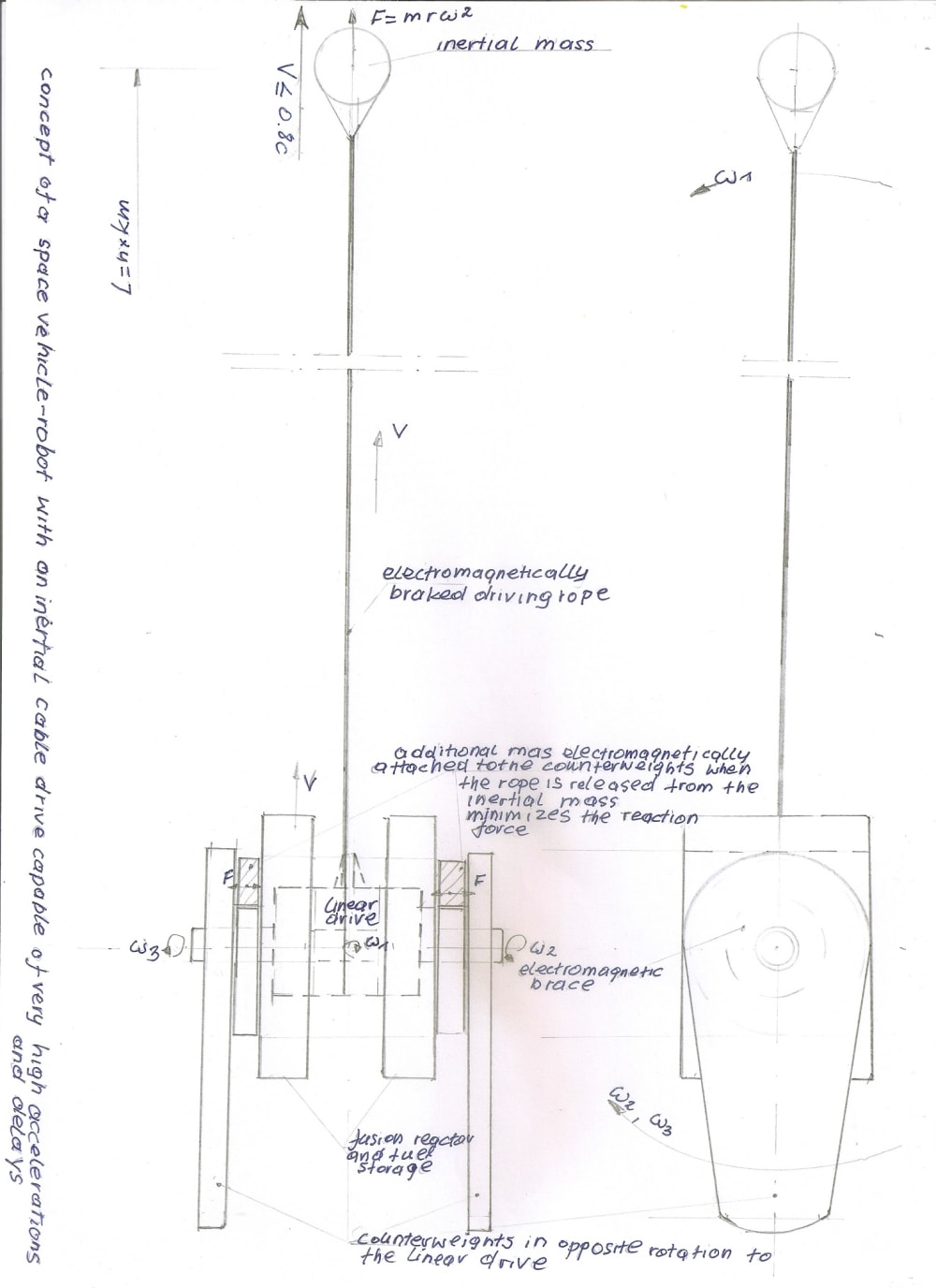The presented concept of an inertial drive, a spaceship-robot, enables the development of backlight speeds and very high accelerations and, which is very important, also delays, i.e. the practical braking of the ship when approaching the planet. Currently, the recoil force is used to propel spacecraft, which has its limitations in the achievable speed and range of rockets.
The described powered robot is accelerated by the force of inertia, taken from releasing the inertial mass on the tendon, which transmits its momentum through the electromagnetic brake to the spacecraft. The inertial mass mounted on the tie rod is set in rotation at take-off and then released and released. The braking electromagnetic force of the electromagnetic brake transfers the momentum of the inertial mass to the ship and drives it according to the formula F = mr w2. After the energy consumption process, the tendon is coiled with the appropriate rotation to keep it under tension. To control the reaction forces, on both sides of the inertial mass drive module, rotate symmetrically, in the opposite direction massive wheels with automatically adjustable center of inertia. These wheels also enable us to steer the robot. At the moment of a sudden release of the rope with inertial mass, in order to minimize the reaction force to massive wheels with opposite rotation, electromagnetic force is attracted to one side, and massive elements are rapidly accelerated.
The robot accelerates by leaps and bounds with very large values. The whole is powered by fusion energy with direct conversion to electricity. The robot can also be powered by energy directed by strong lasers and accelerated to high speeds in a short time.
Like this entry?
-
About the Entrant
- Name:Wojciech Zwolak
- Type of entry:individual
- Patent status:none

